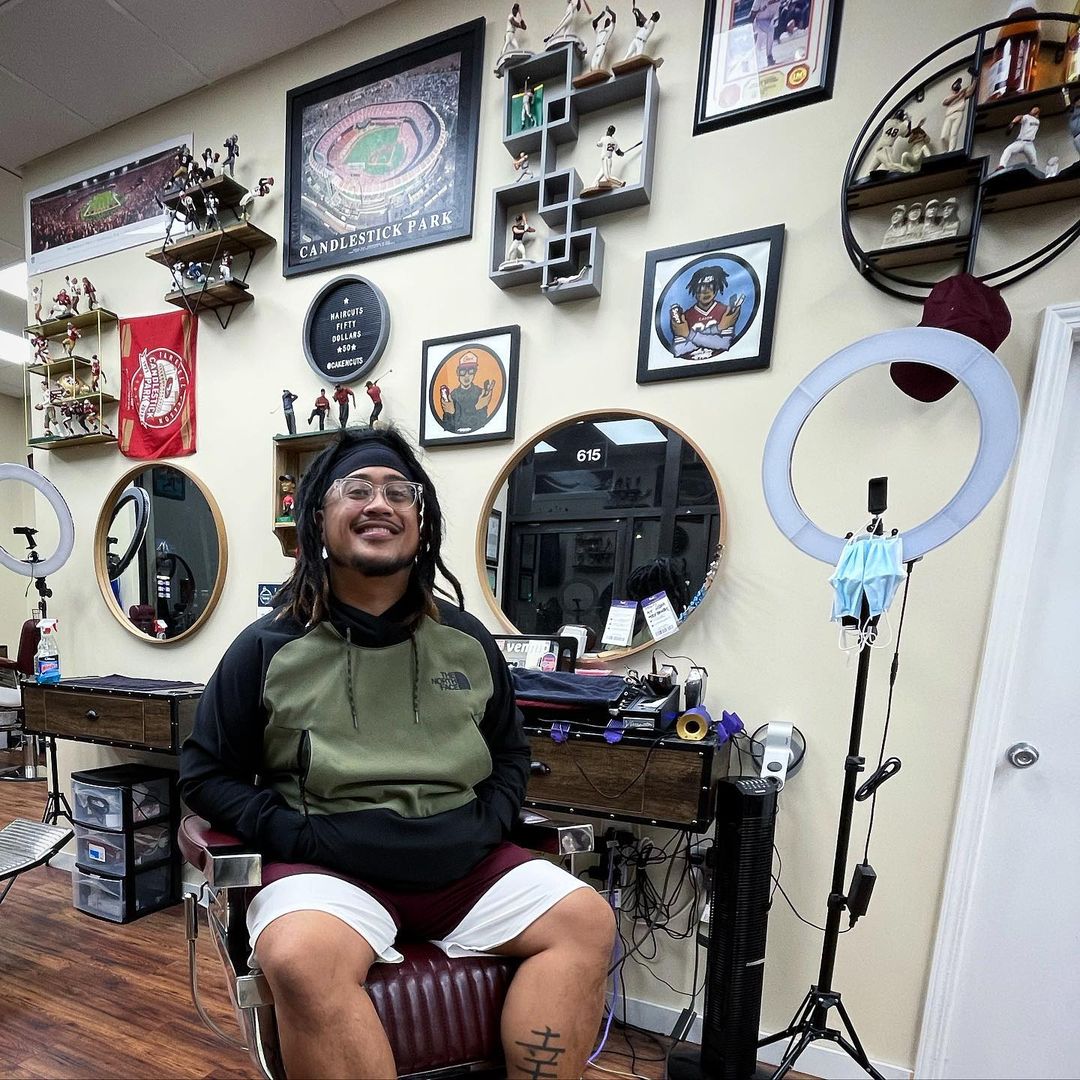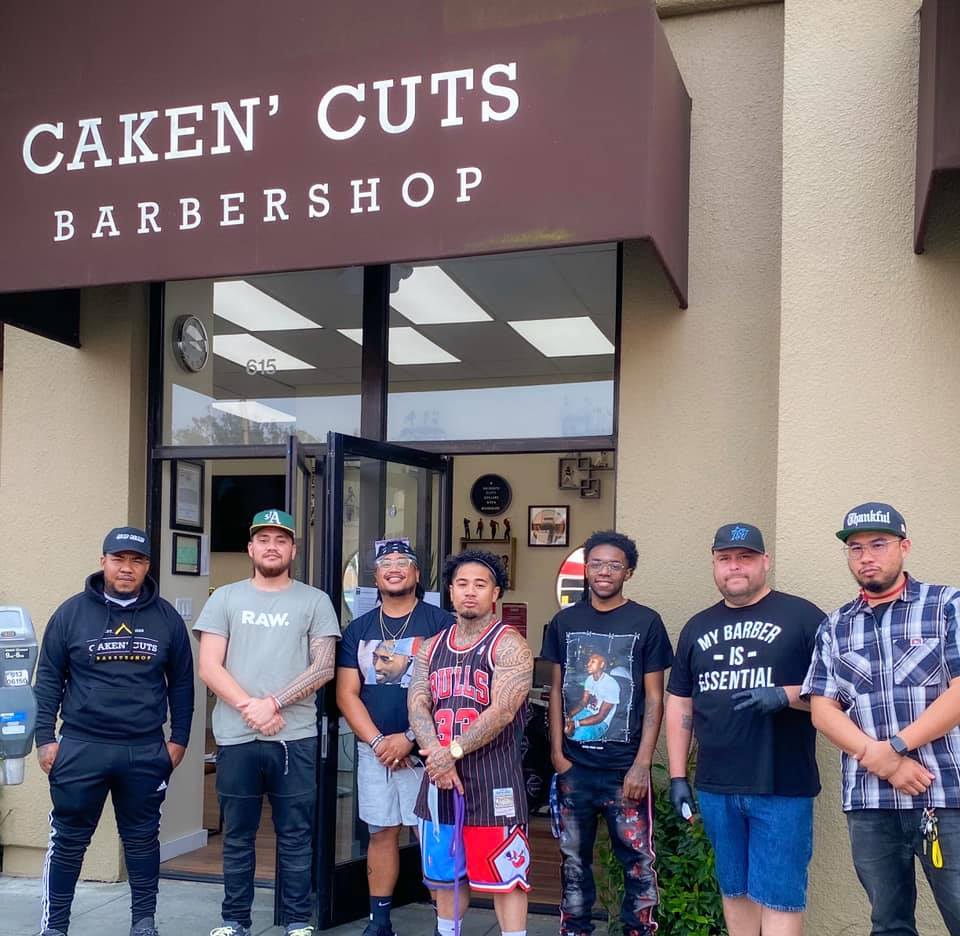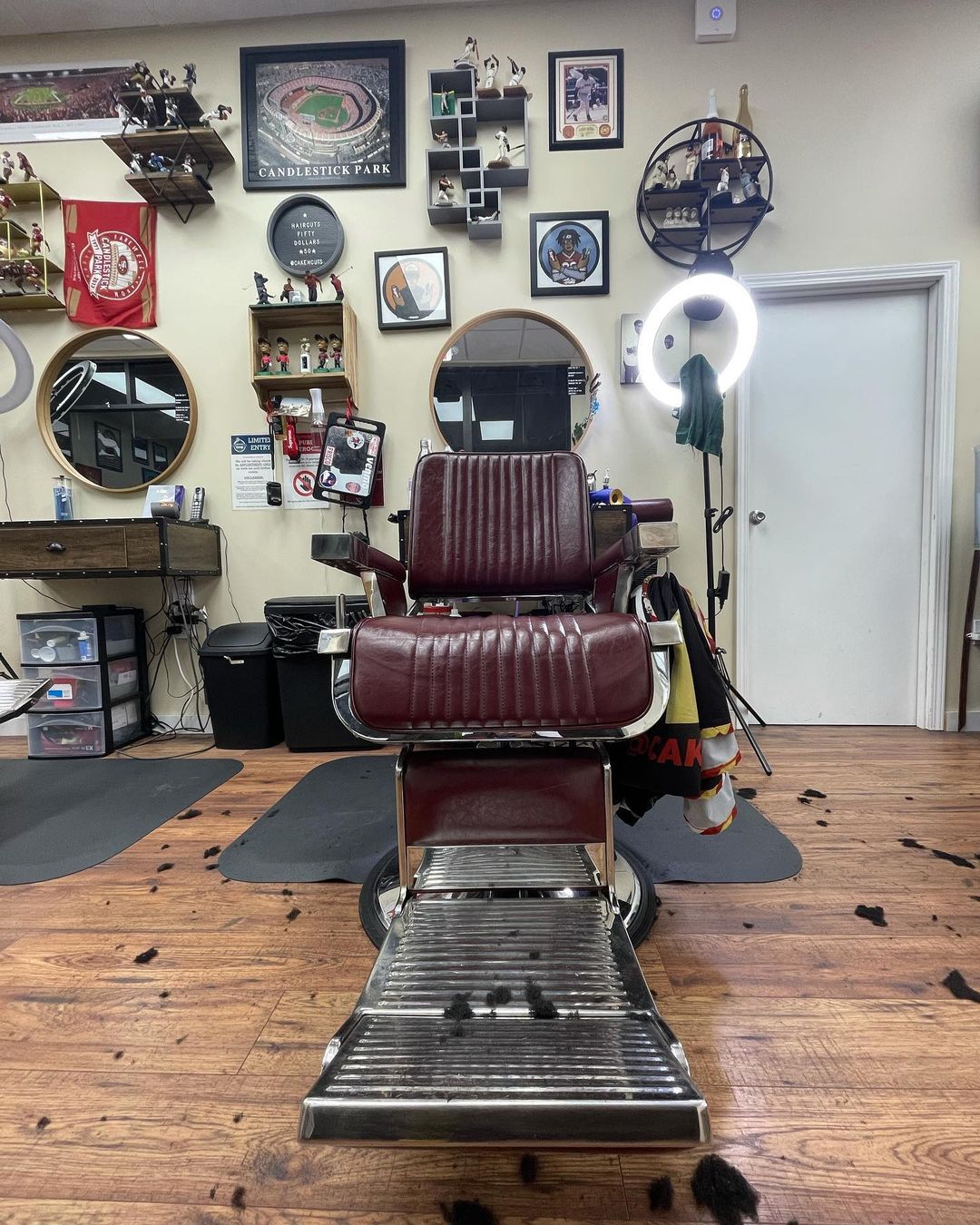Making Mental Health Awareness a Priority in the Shop

World Mental Health day takes place on October 10th, which means that advocates from across the globe spend the first week of October spreading awareness to help people better understand this truly important topic. For industry professionals, addressing mental health concerns is particularly important because being regularly exposed to clients who are struggling with their mental health can take its toll.
To help explain the importance of mental health awareness, we spoke with Randy Tagle, a barbershop owner who has been in the industry for over 15 years. Every day, Randy battles anxiety and depression, which are two of the more common mental health issues in America.
After experiencing a crippling anxiety attack almost 15 years ago, Randy learned ways to cope with issues outside of his control that trigger his anxiety and depression. And to this day, whenever Randy isn’t creating urban inspired graphic designs or the absolute freshest of fades, he practices a number of coping methods to stay balanced.
One of the more important ways that Randy has learned to cope is to share his experiences with anxiety and depression via his own podcast, which he created to spread mental health awareness. He freely talks about what he has learned with anyone and everyone. And that includes the loyal clients who regularly sit in his chair and the staffers who work by his side.
Take this time to learn from Randy. Find out more about his journey to stay mentally and emotionally balanced. Learn about how he creates a healthy environment within his shop by regularly checking on himself and the staffers who have become his second family. Read the guidance that he freely shares with others, because it has changed lives for the better.
Understanding Mental Health Awareness
At 34 years young, Randy is well beyond his years both emotionally and mentally. In 2006, Randy experienced an anxiety attack that took his breath away in the worst possible way. That same year, he was professionally diagnosed with both anxiety and depression.
Instead of being crippled by his diagnosis, he started implementing healthy routines to help him stay balanced. Every morning when Randy climbs out of bed, he meditates. Afterwards, he plans time for exercise, even if it’s just walking for a short distance. For Randy, exercise is not about aesthetics. It helps his mental and emotional well being.
Another way that Randy stays balanced is by talking about his emotions and the experiences on his plate. According to Randy, so many service providers spend time acting as therapists to the hundreds of different clients that they see. But those same professionals forget to check on their own mental health and that needs to change, he said.
Like many barbers and stylists, Randy regularly has intimate, personal conversations with his clients. And that means he walks them all through a host of highs and lows. All of his professional time is spent behind the chair at Caken' Cuts Barbershop, the shop that he owns and operates. And as many professionals know, working as a barber means being exposed to all of the emotions that the loyal clients visiting his shop are experiencing.
“Honestly, I think that mental health awareness is something that’s overlooked in the industry. But it’s something that every professional should try to understand. I believe that if more people understood how important it is to stay aware of themselves, their surroundings, their situations, and how these things impact them—those same people could live much fuller lives,” he said.
Spreading Mental Health Awareness
As an effort to help others, Randy hosts his own podcast. It's aptly named Buzzing with Anxiety. During many of the episodes, Randy talks about issues that trigger his anxiety and stress. Oftentimes, he shares the steps he takes to overcome those challenges. Other times, he talks about his life in a way that may provide comfort to listeners.
Some of his most recent podcast topics are as follows: dealing with the stress of cutting celebrity clients; the importance of celebrating professional victories; how to remain professional while rescheduling clients; and juggling a sponsorship program while running a business.
To date, Randy has aired 55 episodes. And that's just in the course of about one year. Despite the positive attention he receives from sharing his stories, the main reason Randy invests energy into spreading the word about mental health awareness is to help other people who are struggling. But by helping others, Randy is able to help himself.
Randy said that airing his story is a form of journaling. He recommends that to anyone who wants to gain mental health awareness. By writing down and recording his struggles, Randy is able to let go of some of the things that trouble him. And he earns this freedom in a way that feels natural, expressive, and creative.
“Anxiety wasn’t a popular term 14 years ago. People just didn’t talk about it. But over the years, I figured out that when I journal and draw—it’s kind of like my security blanket. It takes me to a peaceful place, and it's very meditative for me. And since I started podcasting, I’ve been getting a lot of great feedback about my podcasts on mental health from people in the industry,” he said.
Discussing Mental Health in the Shop
Another reason that Randy spends so much time sharing personal concerns is because of the commonality of mental health issues. Randy understands that millions of people in America struggle with these challenges. And he firmly believes mental health awareness is the only real solution.
In fact, anxiety disorders are the most common mental illness in America. Anxiety affects 40 million adults in the United States aged 18 and older, or 18.1% of the population every year, according to the Anxiety & Depression Association of America. And roughly 16.2 million American adults suffer from at least one major depressive episode every year. This represents 6.7 percent of the U.S. adult population, according to the National Institute of Mental Health.
Because of these staggering numbers, Randy makes a point to stay balanced. But he also checks on his staffers. He makes sure they’re focusing on mental health awareness. And that's because he knows from first-hand experience that anxiety can lead to trouble concentrating. Even a state of mild depression can decrease productivity, creativity, and motivation.
To ensure that employees and fellow staffers have all of the tools that they need to create a healthy environment, Randy recommends performing some or all of the following tasks:
- Arrange private, informal chats
- Remain open to discussing work adjustments
- Always be approachable
- Treat every employee equally
- Stay honest but be respectful
- Create fair guidelines
- Acknowledge progress and even small successes
- Stay mindful and watchful over the environment
- Encourage staffers to open up
Helping Clients Stay Balanced
It’s important to remain mentally and emotionally healthy by checking-in on employees and fellow staffers. But it’s also good practice to promote mental health awareness amongst loyal clients. While that may seem tricky, Randy said there’s a number of ways to tactfully approach customers.
Tips on helping customers stay balanced:
Randy recommends conducting consultations sessions with new and returning clients. Make it a priority to gauge how each client is feeling, he said. And never try to force a client to communicate. But do spend time learning about every client. Ask questions about things going on in their lives and go from there, he said.
He then added that it's important to look for visual cues and make the right accommodations. "If a client is sweating, I offer them water. And if a client sends or reads a text, I notice if they’re upset or smiling. Then, I carefully adjust my interactions with that person to match their mood," he said. Randy added that it's important to give a customer space. But make sure to look and listen as much as possible—learn how to respond to their actions.
Randy then said that it’s important to remember details about each client. "Remembering small details will help you accommodate their needs on future visits. Once you know their habits, keep amenities that person likes nearby. Then talk them through anything that might have been happening in their lives during their previous visit," he said.
The final piece of advice that Randy offered is to step away from the chair. Although this piece of advice may not seem like it's designed to help clients and staffers, stepping away from the shop is one of the most important ways to promote mental health awareness, he said. And that's because it prevents burnout, which is so very common.
“I know that a lot of people suffer from mental health issues. Acknowledging them doesn’t mean you’re any weaker. It actually shows that you’re stronger and more intuitive of your mental health capacity. Mental health is a part of your structure and your backbone. Make sure that you take care of it,” said Randy.















